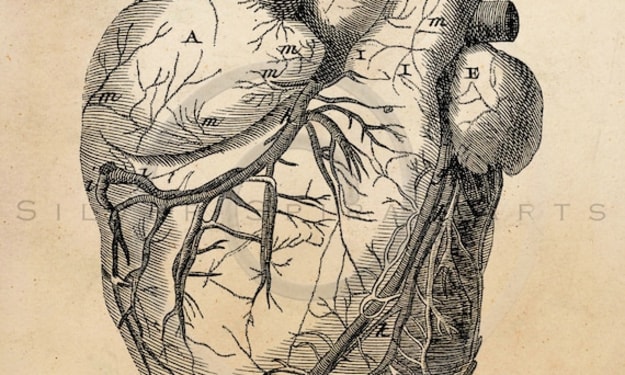I Saw the Sign
Normalizing “Relationship Red Flag” Discussions with Loved Ones

Don’t you dare apologize because you didn’t know I was being abused.
When I escaped my abuser of five years, “M”, I was left with many damaged relationships due to his varied efforts to isolate me from my loved ones. This isolation was a control tactic and a method of ensuring I didn’t feel safe telling anyone about the abuse.
Isolation as Abuse
Abusive partners often attempt to separate victims from their friends and family, making it difficult for them to reach out for help. They may even try to control what their victim says to others or monitor their communication. These complex and pervasive tactics are developed to make it challenging for victims to seek support from loved ones. As a result, friends and family members may not be aware of the abuse. If they do notice warning signs, they often either don’t make the association to abuse or feel uncomfortable broaching the topic.
As I began to process what I’d been through and learned to confide my experience to loved ones, some of them expressed a sense of guilt. Depending on the person, they either felt shame for failing to see the warning signs, or because they'd noticed signs and didn’t know how to discuss them with me. Many said they thought my partner was off-putting, controlling, or an asshole (I mean, they weren’t wrong), but didn’t realize it was abuse and didn’t feel it was their place to point it out to me.
Why is it that we rarely tell our loved ones that their partners are assholes until after the relationship ends? The truth is, it can be incredibly awkward to broach this topic. We're taught not to meddle, and worry about hurting our relationship with both parties. But while it is uncomfortable, it is also vital to start normalizing raising those red flags, even if the potential victim may not be ready to see them.
Please, I beg you, tell me if my partner is an asshole. I’m too close to tell.
Communication Breakdown
My best friend, in particular, described feeling responsible for not being more vocal about how much she disliked M. But while she saw snippets of his manipulation, she didn’t know how bad it was behind closed doors, something M made sure I felt complicit in hiding from her.
Now let me pause to say this bitch knows my favorite brand of Spanx. She’s in my will (which I made because I was afraid I was going to get murdered by my ex). She’s been with me since I was 6 and can practically sense my emotional state from a thousand miles away. Yet she didn’t know the real danger of my situation. If that doesn’t tell you I was an expert at concealing the extent of the abuse, then I don’t know what does.
This disruption in communication was by the design of my abuser and heavily served his interests.
Lack of Reporting
Domestic violence often goes unreported because victims feel ashamed or afraid to speak up. The trauma of both the abuse and the stigma victims experience when reporting can leave a lasting impact, leading victims to believe that they are alone and that it’s their own fault.
It can be challenging for friends and family members to voice their concerns, as they fear offending or upsetting the victim, risking them withdrawing even more. This discomfort serves as a barrier preventing people from speaking up and addressing potential warning signs, further perpetuating the cycle of abuse.
Breaking Free
We must take steps to support victims of domestic violence by breaking down these communication barriers. Some of the best ways to do this are modeling healthy, safe relationships and normalizing nonjudgemental discussions of any concerning behaviors noticed by loved ones. That’s where you come in.
If you’re worried someone you care for may be in an abusive relationship, it’s important to approach the situation with empathy and understanding. Start by expressing your unease in a non-judgmental way. You might say something like:
“I’ve noticed your partner seems to become highly upset when you spend time with your friends. This concerns me because I want you to feel supported and loved in your relationship. Is there anything your partner does that makes you feel unsafe or unsupported?”
Remember, leaving an abusive relationship is not always a straightforward process. Many survivors face significant barriers to leaving, including financial dependence on their abuser, fear of retaliation or violence, and social isolation. A sense of safety in communicating about abuse is a significant barrier, as is the presence of denial as a powerful survival tactic.
Your loved one may not yet be ready to leave the relationship altogether, but maintaining open communication with them about their experiences can be an important step in helping them eventually feel safe to do so. The best thing you can do is be there for your loved one and let them know you believe and support them. Encourage them to seek help and offer to help them find resources, such as a therapist or a support group.
We should strive to create an environment where it feels safe to disclose unhealthy and dangerous behavior to friends and family. This means promoting non-judgmental, supportive, and empathetic communication with survivors. We can enhance this skill by educating ourselves on the dynamics of abuse, including how abusers manipulate and control their victims, and by being aware of the warning signs of abuse. By doing so, we can help prevent abuse and support survivors in their journey toward healing and safety.
Subscribe in one click to receive your FREE digital copy of my new guided journal, “Empower and Heal: 90 Days of Transformational Prompts for Trauma Recovery, Self-Discovery, and Growth”, delivered straight to your inbox!
Trauma Recovery Book Club
The Body Keeps the Score: Brain, Mind, and Body in the Healing of Trauma — Bessel van der Kolk, M.D.
This post may contain affiliate links. This just means if you click a link and decide to make a purchase, I’ll earn a few extra pennies to support my book-buying habit (and do an elaborate, celebratory dance around my apartment just for you). My promise to you is that I’ll only ever recommend resources I truly believe in and have found beneficial in my healing journey. Happy reading!
About the Creator
Veronica Wren
Trauma sucks. Recovery shouldn't. Subscribe here for your FREE exclusive guided journal
❤️🩹 bio.link/veronicawren ❤️🩹
Domestic Abuse & CPTSD Recovery Coach






Comments (1)
Great article! So much truth that hits close to home